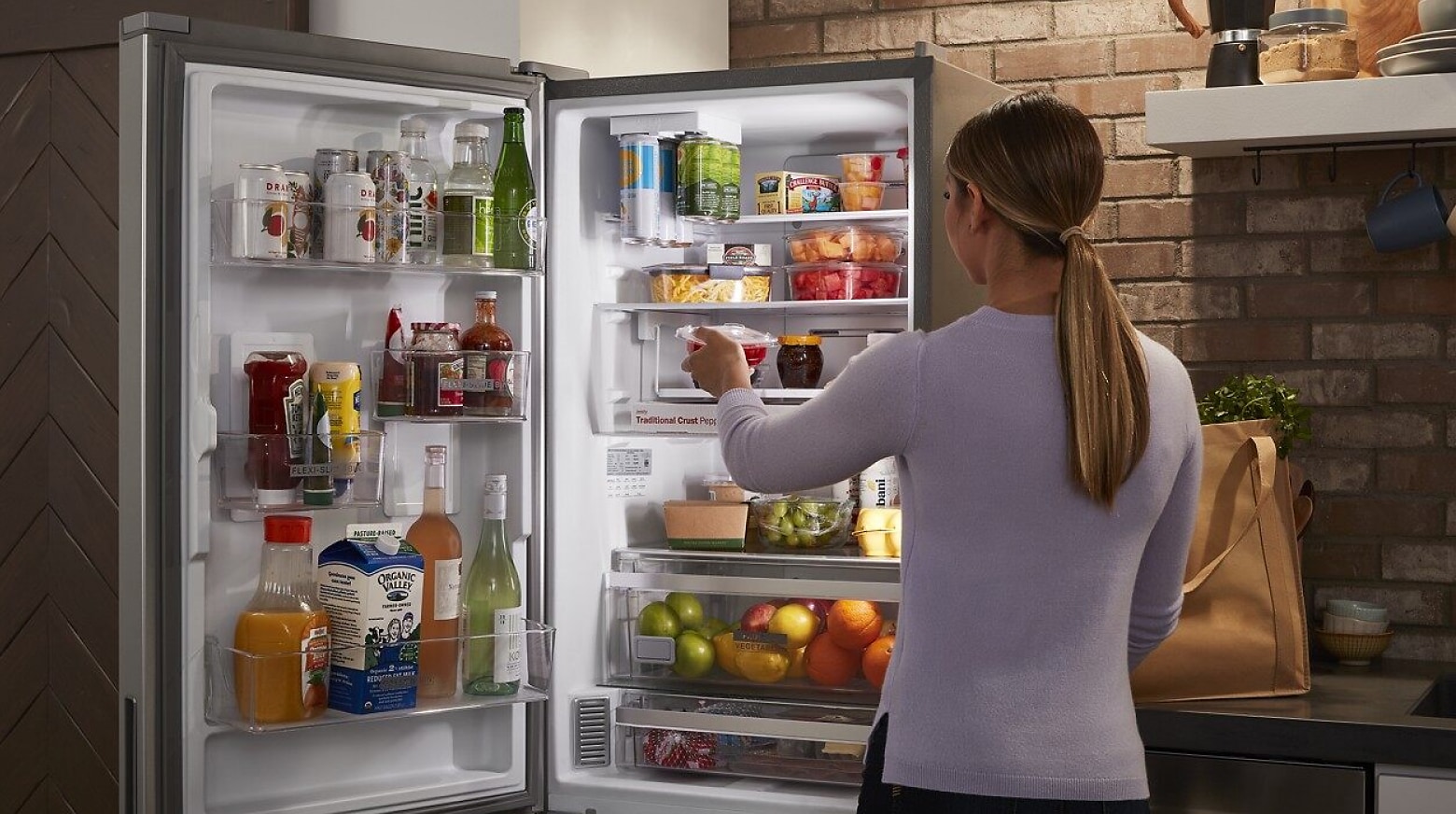At TheKitchenApplianceDad.com, we often encounter questions about the durability and maintenance of kitchen appliances. One common query that pops up is: “Can a refrigerator get wet?” While it might seem straightforward, the answer requires a deeper understanding of a refrigerator’s design and its interaction with moisture. In this detailed guide, we will explore the effects of water on refrigerators, how to handle situations where your fridge might get wet, and preventive measures to ensure its longevity.
Understanding the Impact of Water on Refrigerators
Refrigerators are designed to operate in kitchen environments, which can occasionally be humid. However, they are not built to handle excessive amounts of water. Here’s what happens when different parts of a refrigerator come into contact with water:

Exterior Moisture
- Body and Finish: Modern refrigerators often have a painted or stainless steel exterior. While these materials can handle kitchen splashes and humidity, excessive water or continuous exposure can lead to rust or deterioration of the finish.
- Seals and Gaskets: The rubber seals around the door are crucial for maintaining the internal temperature. Exposure to water, especially if not dried properly, can lead to the seals becoming brittle and cracking over time, which affects the fridge’s efficiency.
Interior Moisture
- Electrical Components: The interior of a fridge, though sealed, contains electrical components that are sensitive to water. If these parts get wet, it could lead to short circuits or malfunction.
- Insulation: Water seeping into the insulation can be problematic. Wet insulation loses its effectiveness, leading to poor cooling performance and increased energy consumption.
Under and Behind the Fridge
- Coils and Condenser: The coils and condenser, usually located at the back or beneath the fridge, can accumulate dust and moisture. While some moisture here is normal, excess water can cause corrosion or affect the efficiency of these components.
How to Deal with a Wet Refrigerator
If your refrigerator gets wet, either from a spill, a cleaning process, or a flood, here are steps to mitigate any potential damage:
Immediate Actions
- Disconnect Power: Safety first. Unplug your refrigerator to avoid any electrical hazards.
- Dry Exterior Surfaces: Use a soft cloth or towel to wipe down any water on the exterior.
- Inspect Seals and Gaskets: Check if the rubber seals are wet and dry them thoroughly. Look for any signs of damage or wear.
Handling Interior Moisture
- Remove Interior Moisture: If water has entered the inside, remove all items and wipe down the surfaces with a dry cloth.
- Check Electrical Components: It’s advisable to have a professional examine the fridge if you suspect water has reached electrical areas.
Post-Flood Procedure
- Assess the Situation: If your fridge was in a flood, the level of water exposure is crucial. Fridges submerged or partially submerged will need thorough inspection by a professional.
- Clean and Sanitize: Once it’s safe to clean, sanitize the fridge to prevent mold and mildew, using a solution of water and vinegar or a mild bleach solution.
Preventive Measures to Keep Your Fridge Dry
To ensure the longevity and efficient operation of your refrigerator, follow these preventive measures:
- Regular Cleaning: Regularly clean the refrigerator, ensuring that water used in cleaning does not seep into sensitive components.
- Check the Environment: Keep the fridge in a well-ventilated area and away from sources of excessive moisture.
- Maintain Seals and Gaskets: Inspect the seals regularly for any signs of wear or damage and replace them if necessary to keep the moisture out.
The Role of Waterproof Refrigerators
In some environments, like outdoor kitchens or areas prone to flooding, considering a waterproof refrigerator might be beneficial. These fridges are designed with enhanced sealing and protective measures to withstand moisture better. For more information on waterproof refrigerators, you may check resources like Consumer Reports or Energy Star.
Key Takeaways
- Refrigerators and Water: Refrigerators can handle light moisture but are not designed to be waterproof.
- Risks: Water exposure can lead to rust, electrical issues, and inefficient cooling.
- Immediate Action: If a fridge gets wet, disconnect power, dry it thoroughly, and inspect it for any damage.
- Prevention: Regular maintenance and proper placement can prevent water damage.
In conclusion, while a refrigerator can withstand minor exposures to moisture, significant water contact poses several risks. Understanding how to manage and prevent water exposure can help extend the life and functionality of your appliance. Keep these tips in mind from TheKitchenApplianceDad.com, and ensure that your refrigerator runs efficiently for years to come.


